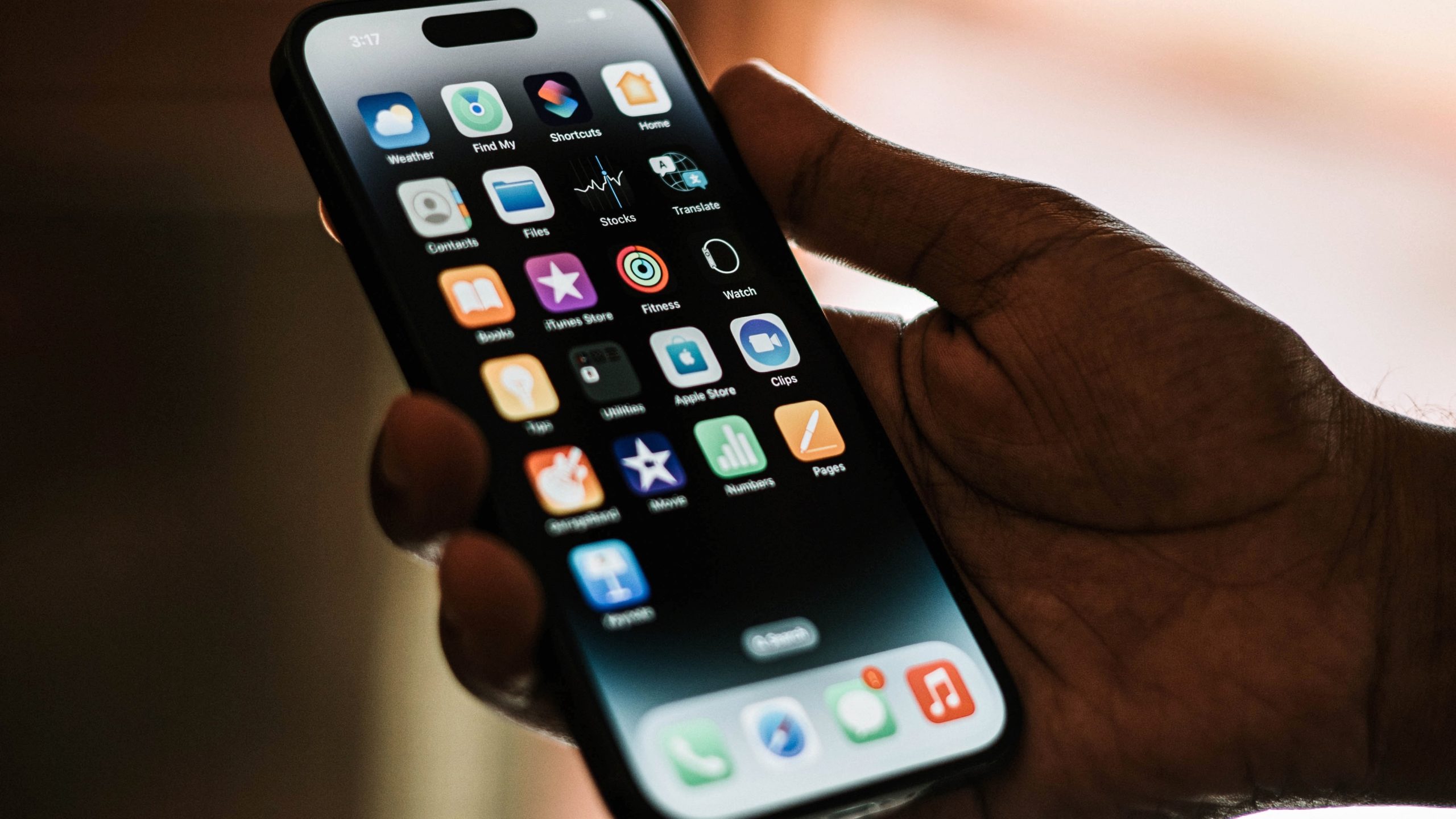
At a time when your kids are desperate and even begging you to let them have their own phone so they can message and chat with their friends, many parents all over the U.S. are asking the exact same thing:
“What Age Should My Kid Get a Phone?”
This important question is usually followed by:
“How do I know when my child is ready to handle the responsibility?”
“Are they mature enough, and what is considered safe for them to do on that phone?”
and perhaps…
“Should kids even have cell phones?”
Why Should a Kid Get a Phone?
You may want your kid to be in touch with you and their friends, but most parents are hesitant (and rightly so) about letting their child dive into social media apps and the world wide web at too young an age.
Obviously, your kid will want to do more than just chat with friends – they will want to create their own personal online profiles for SnapChat, Facebook, and Instagram and post photos of themselves online to share with their friends.
However, your kid’s age is not the priority here – it is your kid’s level of maturity.

What Age Should Your Kid Get a Phone?Quiz for Parents |
||||||
| These 10 questions have been developed by pediatricians from the American Academy of Pediatrics, and they will help you find out if it is a good idea for your child to have their own phone. | ||||||
| Instructions: Make a note of your score for each question, add those scores up at the end of the quiz, and then check your total score to see the final result. | ||||||
| # | Question | # | Answer Options | Points | Score | |
| 1. | In your family, who is the one starting conversations about getting your child a phone? | a. | You (a parent or caregiver) | 3 |
|
|
| b. | Both you and your child | 2 | ||||
| c. | Your child | 1 | ||||
| 2. | How often do you think your child needs a cell phone for their safety? For example, do they travel on their own to school, for after-school activities, or to visit family and friends? |
a. | Almost Always | 4 | — |
|
| b. | Sometimes | 3 | ||||
| c. | Every Once in a While | 2 | ||||
| d. | Rarely | 1 | ||||
| e. | Never | 0 | ||||
| 3. | How often would having their own phone help your child to connect with family or friends that they can’t see in person? |
a. | Almost Always | 4 | — |
|
| b. | Sometimes | 3 | ||||
| c. | Every Once in a While | 2 | ||||
| d. | Rarely | 1 | ||||
| e. | Never | 0 | ||||
| 4. | How often does your child keep to your rules about the other media in the home, such as following set time limits on TV, tablets, or video games? |
a. | Almost Always | 4 | — |
|
| b. | Sometimes | 3 | ||||
| c. | Every Once in a While | 2 | ||||
| d. | Rarely | 1 | ||||
| e. | Never | 0 | ||||
| 5. | How often does your child act responsibly, such as finishing things they are assigned at school? |
a. | Almost Always | 4 | — |
|
| b. | Sometimes | 3 | ||||
| c. | Every Once in a While | 2 | ||||
| d. | Rarely | 1 | ||||
| e. | Never | 0 | ||||
| 6. | How often does your child successfully keep track of their possessions, like their school backpack, or their hats or gloves? |
a. | Almost Always | 4 | — |
|
| b. | Sometimes | 3 | ||||
| c. | Every Once in a While | 2 | ||||
| d. | Rarely | 1 | ||||
| e. | Never | 0 | ||||
| 7. | How often do you trust your child’s judgment, for example, when they make their own decisions when you’re not with them? |
a. | Almost Always | 4 | — |
|
| b. | Sometimes | 3 | ||||
| c. | Every Once in a While | 2 | ||||
| d. | Rarely | 1 | ||||
| e. | Never | 0 | ||||
| 8. | How often is your child able to control their impulses (for example, can they avoid interrupting others, or handle disappointment without overreacting)? |
a. | Almost Always | 4 | — |
|
| b. | Sometimes | 3 | ||||
| c. | Every Once in a While | 2 | ||||
| d. | Rarely | 1 | ||||
| e. | Never | 0 | ||||
| 9. | How often does your child admit to you they have made a mistake, and then work to make things better? |
a. | Almost Always | 4 | — |
|
| b. | Sometimes | 3 | ||||
| c. | Every Once in a While | 2 | ||||
| d. | Rarely | 1 | ||||
| e. | Never | 0 | ||||
| 10. | Are you prepared to take safety steps in the future, such as setting parental controls, creating a family media plan, and talking with your child about what they see and do online? |
a. | Yes | 3 | — |
|
| b. | Not sure | 2 | ||||
| c. | No | 1 | ||||
Total: |
— |
|||||
“What Age Should Your Kid Get a Phone?”: The Results
If your score is between 26-38 – YES – Your Child Should Get a Phone |
Now you’re getting your kid a phone, experts recommend setting clear guidelines in a conversation before they receive the device. Here are some tips and resources that will help your child have a safe and positive experience with their first phone:
- Make your kid aware you need to know the password to their phone and that you have the right to take it away if you don’t think they’re using it wisely or safely.
- Always set parental controls on your child’s cell phone. To find parental control guides for individual smartphones and common apps, go to:
- Common Sense Media: Parents’ Ultimate Guide to Parental Controls
- Always set limits on both general screen time and phone time.
- Determine the consequences when using the phone is not allowed, such as late at night or during family activities.
- Agree on a financial limit – how much money is available to cover the data plan and any game or app expenses.
- If the phone is lost or broken, agree on whether it will be replaced. If so, who will pay for it?
- Make your own Family Media Plan to create set goals and rules about technology use in line with your family’s values.
- Talk frequently with your child about what they see and experience online. Visit the American Academy of Pediatrics Healthy Children website for tips and information about having ongoing conversations with your child to keep them safe and healthy, both online and off.
If your score is between 18-26 – NOT SURE – If Your Child Should Get a Phone |
If you score 18-26, it is not clear if your child is ready for a phone or not – your answers put your child in the “gray zone” of our quiz results. Perhaps it would be far wiser to wait for 3-6 months, and then complete the quiz again.
Alternatively, why not get a simple phone for your child that is not equipped with smartphone features, such as access to the internet, apps and social media? In this way, you can see if they are responsible enough to have one, keep it safe, and use it appropriately.

If your score is between 2-18 – NO – If Your Child Should Not Get a Phone |
Unfortunately for your child, you need to wait a while, and then complete the quiz again. This can be an ongoing conversation you have with them about their relationship with technology.
Additionally, you can always continue to explore what kind of non-smartphone devices are available that meet your kid’s social needs, as well, along with other considerations.
Here are some tips to consider before retaking the quiz:
- Please talk with your child about what they can do to learn responsibility, learn to control impulses, and stay organized.
- Parents and caregivers are always essential role models for their kids, so be their social media model. Change your behaviors and habits to what you expect of your child. Remember to talk to your child about these behaviors and why they are essential.
- Please get familiar with some of the issues you and your child may encounter when they have a phone. You will find information, tips, and resources for parents and caregivers on the American Academy of Pediatrics Healthy Children website.
- Retake the questionnaire when you feel you and your child may be ready.
Your Kid’s First Phone: Advice for Parents

- Treat getting a phone like an experiment. As your child shows more responsibility, they could gain more independence – with fewer controls.
- Try to check out new apps or platforms, compare notes, and decide what is working and what’s not.
- Remember, they are likely to do the same if you look at your phone while driving or during meals.
- If you can balance your media use with screen-free activities, they will find it easier to do the same.
7 Steps to Good Digital Parenting
According to the Family Online Safety Institute, there are several useful resources that you can use, as a parent or caregiver, to learn how your kids can go online safely, such as the “How to Be a Good Digital Parent” Toolkit.
7 Steps to Good Digital Parenting |
||
|
1. |
Talk With Your Kids |
|
|
2. |
Educate Yourself |
|
|
3. |
Use Parental Controls |
|
|
4. |
Set Ground Rules & Enforce Consequences |
|
|
5. |
“Friend” & “Follow” But Don’t Stalk |
|
|
6. |
Explore, Share, & Celebrate |
|
|
7. |
Be a Good Digital Role Model |
|
Social Media Addiction: The Importance of Setting Limits
Parents and caregivers need to set healthy limits on how often and when their child can use their phones. Here’s why:
Many experts place much of the blame for the ongoing U.S. youth mental health crisis on social media, specifically social media platforms like Facebook, Instagram, TikTok, and SnapChat.
Research has found that the overuse of social media has been linked to increased rates of depression and anxiety, loneliness, decreased well-being, and low self-worth and self-esteem among U.S. teens.
For example, symptoms of depression are 2-3 times more likely to appear in teenagers who spend 5-7 hours a day on their smartphones.

Mental health experts agree that these platforms have created a “culture of comparison” among users. For example, when a teenager compares their life to a friend’s seemingly more exciting life, it is easy to see their life as dull and depressing. Constantly comparing themselves to others isn’t good for your kid’s mental health.
There is also evidence that social media use can lead to the development of an eating disorder, such as anorexia nervosa, bulimia, or a binge-eating disorder, especially in teenage girls already dealing with their poor mental health.
Social media addiction is the dependence on interactive platforms such as Facebook, Twitter, and Instagram. Like most dependencies, social media addiction manifests as overuse and difficulty abstaining. Ironically, one common effect of the problem is social isolation.
Other dangers directly linked to social media include cyberbullying, easy online access to illicit drugs, and resulting poor social and interpersonal skills.
Check out our article: The Darker Side of Social Media to learn more.
Avery’s House Can Help You: Teenage Mental Health Treatment
At Avery’s House, we’re passionate about helping teens, young adults, and their families develop the skills needed to navigate their daily struggles. Our highly specialized behavioral health professionals work with adolescents to evaluate, diagnose, and stabilize various teen mental health conditions.
Contact us today to learn more about treatment options, verify your insurance coverage, and see if Avery’s House is right for you and your teenager.